#and he seemed like a viable choice for internet obsessiveness
Explore tagged Tumblr posts
Text
Tim has found his soulmate (not a soulmate AU, just in the like “i think we’re totally meant to be together” way). Well, okay, it’s entirely one-sided so far, but he’s sure SpecterNova will reciprocate once they’re in proper contact.
He’s already found everything he publicly can on the youtuber, but he’s still digging deeper. It’s weirdly difficult—his love must like his privacy!—but he’s making headway.
On the other end, Danny is getting nervous about the dedication of his new internet stalker. Even with Tucker’s help in setting up his online security and the scrambling effects of ectoplasm, they can tell that the person is still making progress. They don’t seem like they’re a part of the GIW, but that doesn’t mean their search can’t harm him in some other way.
He really hopes he doesn’t have to change identities again. Having to do it the first time to flee the GIW was bad enough, and he’s been liking his current life.
#ONE SIDED dead tired ship#one sided love#tim is suffering from a major parasocial relationship thing#i like tim but he’s getting thrown under the bus here#because i want to see more stories that condemn/portray negatively the stalker-y stuff that appears in a lot of batfam-x-other-person fics#and he seemed like a viable choice for internet obsessiveness#dp x dc#dc x dp#dpxdc#dcxdp#danny phantom x dc#danny phantom x dc crossover#youtuber danny fenton#or could be#streamer danny fenton#but i think the youtuber route makes more sense#because like it’d give him more room for privacy to keep off the GIW’s radar#content creator danny fenton
1K notes
·
View notes
Text
2020/ Chain of Fools
2020 was the year I adopted a boiler suit and gas mask as a daily uniform. The world had gone into a global lockdown to combat the COVID19 virus which meant we were only allowed to leave our house for essential reasons such as grocery shopping and exercise. When outside, we were government mandated to wear face masks to prevent the spread of the disease. They made me feel like a muzzled dog and I resented no longer being able to smile with strangers on the street. Feeling like a prisoner in his own home and under extreme stress from job insecurity, my boyfriend Jake’s amphetamine addiction began to spiral out of control.
As a result of Jake’s addiction, we had accidentally befriended a posse of drug dealers and prostitutes- bonded by our love of having a good time and a general disregard for consequence. We met Dani through a call girl friend of mine who had realised the difficulty of making a living through writing online fashion content. Dani had big brown eyes, fat, botoxed lips and dressed only in high end labels like Gucci and Balmain. Born into a wealthy family, she had acquired a taste for expensive things but lacked the work ethic to maintain this taste without selling her body for sex. Dani began to visit more throughout the lockdown to deliver Jake drugs, hidden in a bag of a groceries. One night, she played Carole King on our old vinyl player, while Jake rolled us a joint to share. I flirted with them both, knowing that it would lead to a threesome. We smoked Jake’s joint, snorted lines of cocaine off each other and then took turns going down on each other.
A week later, Dani introduced us to a crew of “script kiddies”- long haired, internet hackers with a love of mumble rap, cryptocurrency and ketamine. I made cocktails for everyone and established that one of these kids shared a mutual friend with Jake. They seemed fascinated by the genuine sexual chemistry between myself, Jake and Dani and expressed gratitude for our generous hospitality. Eventually I came to the conclusion that by associating us with this crowd, Dani had managed to successfully pray on the vulnerable- trusting junkies like us who were lax with internet security and keen for a good time. In retrospect, I wish I had known that Dani was a hustler at heart- making money in any way she could without considering the impact of her choices. At the time however, I felt like we were fully living life in the moment- something I was certain would bring me happiness, meaning and didn’t question her motives for a moment.
Ella, Dani’s best friend, had a boyish pixie cut, high cheekbones and was tall and slim. She had gradually joined in on our shenanigans, along with Mark, a dealer with a steady supply of the best gear available north of the river. We all hung out together in our plant-filled, converted warehouse listening to electronic music and sharing stories about our favourite mind-altering substances. My stories were consistently focused on MDMA. As a notoriously private person, I’d discovered MDMA helped me open up and allowed me to dance, free of fear of judgement. It had also helped Jake open up about the sexual abuse he experienced as child, a fact I doubted would have ever come up without the influence of a truth serum and something which I was certain had driven him to substance abuse in the first place.
While we laughed, chatted and danced with Dani and Mark, Ella, who claimed to be a part time poet and part-time model, entered a viral script virus onto our wireless network by requesting our wifi password. Something we provided willingly, without second thought. This meant remote access to every digital device we owned and access to all stored personal information including scanned copies of our passports and birth certificates.
The issue with Mark, despite his criminal lifestyle, was that he was excellent company. Intelligent, engaging and a DJ in his spare time- we thrived off his love of hip hop and old-school funk. Similarly, he thrived off our property location in the Inner North- close to his regular customers and discrete enough from the prying eyes of authority. We welcomed him into our home with open arms, deprived of social contact through social distancing practices enforced by the pandemic. We held COVID19 illegal gatherings where we got high off Mark’s supply, enjoyed each other’s company while Ella hacked our electronic identities. When you’re lonely, it doesn’t really matter if others are using you and you’re using them. As long as everyone is filling a clearly defined role, the maladaptive social ecosystem continues to function.
It’s unclear exactly how many international drug smuggling routes were established using our stolen online identities before Jake clued on that something wasn’t right. He told me that he had been locked out of his email account, that the speed of his phone had slowed and that he could hear clicking noises during his phone calls. He was certain that his was a breach of online security and started to question the motives of our new friends. I wrote him off as crazy, blaming his excessive use of amphetamines and the psychological effect of social isolation. I was determined to keep my online identity public, obsessed by the idea of becoming the next millennial therapist and too blinded by Dani’s beauty to believe that she would want to harm us in any way.
Eventually Jake’s distress became too extreme to ignore and he shook me violently one night, yelling at me to believe what I had assumed was a paranoid conspiracy theory. A sinking feeling in my gut became apparent when he started to coherently piece together his concerns about his online security issues. I realized that my sense of reality had been clouded by my lust for Dani and by a dark depression that had developed through my work as an essential worker during a pandemic. Based on Jake’s erratic behaviour, I knew we had to get out of the warehouse immediately, but I had no idea where to go and was fearful of drawing attention to any law-breaking activity when police presence was so prominent.
We agreed to seek refuge with our friends Trish and Rick, former 90s British ravers who had channeled their drug-fuelled benders into successful and respectable careers. I called them panicked that night, shaking and rambling about what had happened. Without hesitancy, Trish told us to come over right away. Rick’s brother back in the UK had recently killed himself and they were struggling too. Trish and Rick lived in an affluent area in the inner East which meant we needed to blend in quickly through a disguise of expensive athleisure and an almost painful sense of normality. It appeared that our efforts at disguise were successful and it seemed to result in freedom from any unusual online activity on our devices. We bought new phones, changed our phone numbers, email addresses and disconnected from the outside world for an entire week. We spoke about going to the police, however we both agreed that this would place us at too much risk to the criminal world to be a viable option.
When your online identity is stolen, you quickly start to daydream what it would be like to steal someone else’s identity. For example, what exactly would you do with those proceeds of crime? Which tropical island would you escape to, what designer clothes would you wear, which car would you drive? I quickly became entranced and jealous at the thought of this fantasy life, but then spent time reflecting on my own morality and these feelings subsided. Instead, an intense anger developed at the thought of others taking advantage of Jake and his mental illness. High on a sense of ethical superiority and new found fury, I decided to employ my favourite psychological defense mechanism, repression, to cope with my latest traumas. May you rest in peace, memory, I said to myself before engaging in my daily mediation ritual.
While repressing my consciousness, I also began to focus on the importance of social support. I knew this shit was important but didn’t fully understand until Trish brushed my hair one night, my arms too frail from fear and stress to function. Trish and Rick played familiar Britpop, drank tea and encouraged us to embrace the therapeutic benefits of music through use of the guitar and keyboard that we had brought to their house. We took turns cooking for each other, played board games and counselled each other through each personal problems, one at a time.
Jake and I stayed with Trish and Rick for two weeks until we could establish an exit plan from the city. We migrated to rural Victoria like many other Melbournians, traumatized by the lockdown. The pace in the country was slow yet calming and people genuinely seemed to care about your welfare when they inquired “How you going, mate?” After such an extended period of social isolation, many of us forgot how to interact with others. We valued and craved human connection more than ever, and yet we seemed scared of what we might connect with. We continued to develop our own deformed version of sign language to communicate through the face masks and focused on re-developing social skills that had been lost through extended disconnection.
Jake and I continued to battle through the challenges of online identity theft and the consequences of his addiction issues. Jake’s substance use had subsided substantially without the influence of Mark and Dani and we eventually adjusted to living normal, routine driven lifestyles. He had cycled through periods of problematic use before, however I still felt somewhat shell shocked by the intensity of his most recent relapse. However, one day late in December I found myself wandering through the tranquility of the Otways, fully freed from the constraints of the lockdown which had finally lifted and contemplating my progress in life since leaving this place as a teenager. The rainforest sounds were vivid and the smells of the ocean salty in my nostrils. I wasn’t where I had planned to end the year 2020, but I was alive and I had Jake. And for that, I felt eternally grateful.
Rosso Del Giorno
Your journey starts here.
An incomplete list of skills senior engineers need, beyond coding
Dear American Progressives: Your Jewish Friends Are Terrified by Your Silence
POLITICS
Inslee announces vaccination incentives
FORGE
50 Very Short Rules for a Good Life From the Stoics
2 notes
·
View notes
Photo

JACOBIN MAGAZINE
While the mainstream press has come under increasing scrutiny in recent years, digital media appears to be stuck in a Wild West phase. It seems that Facebook is constantly running into trouble, from reports of data being mined without our consent to moral panics about foreign agents hacking Western democracy and hate crime caused by fake news. Yet as the world’s largest social media platform faces a series of crises, the opportunity has opened up to discuss its regulation.
Labour leader Jeremy Corbyn made a bold move onto this terrain on August 23 in a major intervention in which he announced “a series of radical ideas to build a free and democratic media for the digital age.” In a speech in Edinburgh, he outlined his vision of democratizing both the publicly owned BBC and commercial journalism. He called for taxes on tech giants and internet service providers in order to help level the playing field between the digital monopolists and public-service media.
This call for media reform was a paradigm shift — particularly at a time when the power of firms like Facebook draws rising skepticism. Today privacy violations, the panic over Russian troll farms, and concern over social media’s impact on mental health have all dented public trust in Facebook, and indeed its previously spectacular share price growth. And if in 2010 the film The Social Network cast Zuckerberg as a flawed yet forgivable genius, his recent congressional hearing was met by memes portraying him as a grasping tycoon with a robot smile.
For years governments have seemed scared of challenging the tech giants, refusing either to tax or regulate the new platforms which presented themselves in a near-magical aura. But Corbyn’s speech represents a breakthrough in the public debate on new media. Once apparently the domain of free-spirited libertarians, Silicon Valley is fast becoming a chief concern for states and governments. As social media monopolies are increasingly politicized, other proposals like introducing democratic oversight over the biggest platforms can offer a way to take control over sites that have become public utilities in all but name.
The Internet Ideology
If Britain’s Labour Party and others are finally breaking with the glorification of Silicon Valley’s libertarian ideals, it is also worth asking why this did not happen sooner. Facebook’s promise for dissenting voices has long been its capacity to bypass traditional media. Social media is, seemingly, a gift for whoever wants to challenge the establishment bias of traditional outlets. From the Left’s perspective, it has been credited with an important role in the rise of both Corbyn in the UK and democratic socialists in the US, able to break through the veil of media silence, or attacks. Yet this has, in its own way, also fed the myth that the Internet is a non-hierarchical, decentralized space; an idea which the digital monopolists frequently hide behind.
The mystique of the new tech giants allows them to skirt around the regulation governing traditional press. A founding myth of the Internet depicts a world in which start-ups grow out of dorm rooms and garages to become global platforms, advancing the creativity and connectivity of humanity. The ideological force driving this narrative is the idea that freedom of expression online is sacred — a principle enshrined in US law. But this also means that social media is not regulated like other media. Section 230 of the Communications Decency Act ensures that providers of an “interactive computer service” will not be treated as the publisher of content held by the service. Zuckerberg invoked this very point in July when he eschewed Facebook’s responsibility for controlling posts on the platform that denied the Holocaust.
Nonetheless, recent controversies have suggested that Facebook is anything but “neutral.” In a bid to combat so-called “fake news,” Facebook hasproudly taken a lead from US intelligence agencies in removing “inauthentic” pages, groups, and accounts. Yet in a context where less than a handful of private businesses dominate social media, Facebook can take decisions that shape the world’s biggest public sphere, with zero democratic oversight. Banning a far-right conspiracy theorist like Alex Jones may draw cries of “good riddance.” But banning the Latin American network TeleSUR, pro-Palestinian pages, and pro-Kurdish content gives a new and yet familiar imperialist slant to Facebook’s pronounced humanitarian and democratizing ideals.
At the same time, recent changes to Facebook’s newsfeed — reducing content considered to be passive, rather than interactive, in a bid to sustain use of the platform — has troubled activists who have come to depend on Facebook for publishing alternative views. These changes have underscored the site’s other monopolizing practices, such as forcing mobile users to reach content outside of Facebook via an internal browser; the browser is so slow that users frequently turn back, the better to interact on the platform itself.
A Monopoly Interest
It is, then, increasingly clear that Facebook is far from a neutral space in which users’ timelines are organically shaped by their networked interactions. Facebook is a publisher; it’s just a giant monopolistic one, driven at base by market incentives. As Zeynep Tufekci puts it, at its core, the tech giant’s “business is mundane: They’re ad brokers.” Indeed, as liberals focus the debate on user privacy and data harvesting they obscure the capitalist logics driving these practices, and what the alternatives might look like when data and global connectivity are free from private control.
It is spurious to respond to legitimate criticisms of Facebook by saying we can simply opt out if we don’t like it, or, like the Adam Smith Institute claims, that what Corbyn is saying amounts to a call to waste public money on building a “knockoff” alternative. Precisely Facebook’s biggest strength (also for users) is its critical mass; we use it because “everyone” is there and because we don’t want to — and in some cases, can’t afford to – “miss out.” Facebook functions as a public utility by sharing a mass of information and connecting as many users as possible. Its critical mass makes it a natural monopoly and that alone is bound to undermine users’ freedom of choice. But far from it thereby simply serving a public interest, it is governed by a business model centered on advertising, decisive to everything we see and do on the platform. This incentive drives the addictive logic behind the algorithms which determine whether you see more kitten pratfalls, a meme about Palestine, or a post from an old friend.
Despite Silicon Valley’s humanist pretentions, fundamentally Facebook is about getting as many people using the platform as often as possible. The longer you stay, the more ads Facebook can deliver. The more Facebook can collect data on your interactions, the more targeted, and thus valuable, those ads can be. If an already saturated Western market and the costs of self-regulation (assumed to be better than overbearing, and slow, state enforcement) might affect Facebook’s share price, it remains true that every single active user in the US and Canada was worth $97 to Facebook over the last year, or $23 in Europe. If you didn’t already know, for tech giants like Facebook you are the product — and that’s how much you’re worth.
Just like a traditional publisher, Facebook is clearly shaping what its 2.2 billion active users see. But instead of paying to produce content, Facebook gets it free from its users and other publishers. And instead of real editors, it depends an army of algorithms that are fine-tuned to keep you hooked.
A Socialist Social Media
Facebook falls far short of realizing the Internet’s true potential. Its capacity for global connectivity and the power of big data — which could be used for advancing human progress in infinite ways — is mobilized for one simple purpose: profit.
But what’s the alternative? Well, Corbyn’s proposals centered on redistributing profits from the tech giants and towards public-service media are a bold start. His vision of a British Digital Corporation is wedded to the UK’s paternalist tradition of social democracy, where “independent” journalism is thought to be a public good. But Corbyn’s speech also went a little further than this, suggesting an alternative that “could develop new technology for online decision-making and audience-led commissioning of programs and even a public social media platform with real privacy and public control over the data that is making Facebook and others so rich.”
Like the BBC itself, a social-democratic alternative to Facebook will face challenges. Facebook has enormous political influence and an industrious capacity to avoid tax. Determining what market Facebook operates in and providing a definition of what a digital monopoly actually is, present big legal challenges to taxation. Moreover, when the logic of capitalist competition is applied to media, public alternatives will struggle in an aggressive market for popular attention. Alternatives to Facebook already exist, but none have achieved the critical mass to make them viable. Even if Zuckerberg’s monopoly is broken up, the capitalist incentives driving the media environment could sustain Facebook, or platforms like it, indefinitely by constantly revolutionizing the means of addiction. It seems that without tackling these incentives head-on, the effect could be to create a tiered internet, with a healthier public sphere for some while leaving the most vulnerable to suffer the most pernicious effects of an online obsession.
(Continue Reading)
#politics#the left#jacobin#jacobin magazine#jeremy corbyn#Social media#facebook#mark zuckerberg#monopoly#oligopoly#democratic socialism#socialism
35 notes
·
View notes
Link
The Flask, a 17th-century former coaching inn at the top of Highgate Hill in north London, has seen its share of poetic outsider figures. Dick Turpin purportedly hid out in the stables. Byron, Shelley and Keats dropped by after visiting the opium-addicted local resident Coleridge. Now Matt Healy, leader of the pop interlopers the 1975 and cutting a Byronic dash himself with a wayward thatch of curls and rose-painted leather jacket and jeans, is in the Flask’s cellar-like back room.
He’s explaining how the Wilmslow band’s heavy presence at this year’s Brit awards — nominations for best British group and album of the year, plus a live appearance — is proof that rank outsiders can upset the mainstream.
“It’s an important moment for us because we’re a subversive act to have broken through on such a level that the Brits would want us to perform,” says Healy, 27, staring intensely over the weathered wooden table. “I’m not from the Brits’ world. I shouldn’t be there and everyone needs to know that. I couldn’t get arrested until I was 23.” He thinks about this for a moment. “Actually, I did get arrested when I was 23, but you know what I mean. I suffer massively from impostor syndrome.”
A cynic might point out that as far as impostors go Healy is an unusually well-connected one. His mother is Denise Welch, alumna ofCoronation Street and Loose Women, and his father is the actor Tim Healy of Auf Wiedersehen, Pet.
“I answered the phone to Harold Pinter once,” Matt Healy offers. “My parents did make following a creative pursuit seem like a viable life choice, but Coronation Street doesn’t buy you currency in rock’n’roll. It’s a curse, actually. When people say my parents bought my connections I think: ‘Yeah, the best person to get you a record deal is Curly Watts. Mention Gail Tilsley to Universal Records and you’ve got a No 1 album in America.’ ”
Forming the band during lunch breaks at Wilmslow High School in 2002 when they were only 13, Healy, guitarist Adam Hann, bassist Ross MacDonald and drummer George Daniel went under a variety of names before settling on the 1975. They vowed to reflect a young, internet-bred generation’s relationship with music where there are no guilty pleasures any more, just an endless world of choices from which to cherry-pick. This approach — of combining everything from shiny pop and gothic introspection to overblown stadium rock, and aligning it all to the terminal oversharer Healy’s emotionally wrought lyrics — led to such glorious moments as playing a concert in Stornoway, on the Isle of Lewis, to an audience of one.
Full interview under the cut
“We were a band with an identity crisis,” Healy says. “I was going around telling people we were the ambassadors of a generation who approach music in a non-linear way, who don’t think in terms of genre. The only problem was nobody was interested.”
Gradually, word got out. The 1975’s self-named debut from 2013 was a hit. When the preposterously titled I Like It When You Sleep, For You Are So Beautiful Yet So Unaware of It went to No 1 in 2016, the 1975 became Britain’s biggest cult band. Now here we are on a rainy January lunchtime and the wildly entertaining Healy is grappling with his conflicted feelings on stardom.
“Can you even be a rock star today?” he asks, talking as much to himself as to me. “The only way I can be a rock star is to be a humble egomaniac. I am saying: love me, with no top on, in a pair of leather trousers, but that obnoxiousness comes with genuine fragility and fear because it’s important for people to feel personally addressed when it comes to art. I’d rather talk about a part of myself that I have a profound distaste for than paint myself in a good way.”
What part of himself does he have a distaste for? “I’m constantly apologising for being pretentious and egotistical,” he says. “And I don’t like it that I can’t have platonic relationships with women. I don’t know why that is. I don’t sexualise women and I’m not misogynistic, but perhaps I’m such an atheist that the closest I can get to divinity is the feeling you have when a woman likes you . . .” He puts his hands over his mouth. “Oh no! This is all going a bit Ron Burgundy!”
Healy does tend to let his mouth run away from him in a way not dissimilar to Will Ferrell’s portentous character in Anchorman. In an interview with The Times in 2014 he pondered on whether he might actually be the Messiah. Last year he got into hot water after recalling Taylor Swift coming to one of the 1975’s concerts. Reflecting on the hysteria surrounding her, he wondered if it would be emasculating to be her boyfriend. The celebrity blogger Perez Hilton picked up on it and interpreted it as an insult against Swift. It also started a rumour that Healy was Swift’s boyfriend.
“Imagine what it is like being Taylor Swift,” says Healy now. “A guy you met for five minutes gets so badgered by questions about you, he inevitably says something that can be misheard as a shade. It made me realise how mental her world is.”
Healy is like your loudest, silliest friend who became famous by mistake and is still working out what you’re meant to do. When he tells of sharing a Saturday Night Live green room with Larry David, Ben Stiller and Bernie Sanders or recalls Dolly Parton calling him a cutie, you sense his awe.
“Mate, I’m just a snot-nosed teenager from Wilmslow and I’ve taken that world with me. The guy who used to do our merchandise is now my assistant, but I can’t call him my assistant because it’s Dan from maths who I used to sit next to. I’d like to say that backstage is like a meeting of Ginsberg, Blake and Lennon. Actually it’s more like The Inbetweeners with us playing Fifa and calling each other dickheads. Put me in a room with famous people and I’m rubbish. When David Byrne was in the dressing room next to ours I was the most uncool person in the world. I was lingering by the door, waiting for David Byrne to come out. Then he appears just as I’m opening a bag of Haribo, I’m shocked, they split open and go everywhere, he walks past me without saying anything and I’m just a dick with a bag of sweets.”
Then there are the fans, who are for the most part teenage girls who identify deeply with Healy while also finding him extremely attractive. “I do take my artistic responsibility seriously because with some of my fans it gets heavy,” he says, looking serious for a moment. “Someone sent me razor blades she tried to kill herself with. She was giving them to me to make sure she never did it again. Kids draw me all the time. I used to have my own emotional baggage. Now I have to buy a suitcase on every tour just for all the emotional baggage I get sent.”
Is that a burden? “No because I totally get it. Fundamentally what people want is human connection. Regardless of religion, or whether the world will come to an end, or what worlds may have come before, the only thing that will actually, definitely happen is interaction with another human being.”
All of this fed into I Like It When You Sleep . . . , its title an expression of Healy’s desire to make an album as over the top and emotionally unchained as possible. The funky, Prince-like Love Me is his response to becoming an icon of sorts; Ugh! is an expression of disgust at his former cocaine excess; The Ballad of Me and My Brain is a depiction of being driven insane by fame; and Loving Someone is a celebration of companionship that has become something of an anthem for the LGBT community. Healy says the album is the product of a band facing up to the crisis of finding themselves, after years of indifference, very popular indeed.
“We freaked out!” says Healy, excitedly, of their sudden success. “We spent ten years in my dad’s garage without anyone caring who we were. Nobody would sign us, so our manager formed a label and signed us for 20 quid in his kitchen, while making pasta and pesto. And then it happened. We were on tour for two years, suddenly it was time to make the second album and we didn’t know if we could do it. George had a breakdown and had to get help. And what was there to write about? I knew I couldn’t release a single called God, Aren’t Threesomes a Nightmare?”
He considers this. “Not that I was having threesomes, but nobody else was sharing our experiences so I had to go deep. What are the fundamentals? Fear, religion, struggles with addiction, my relationship with my mother, dealing with death . . . And I can’t change who I am. When it comes down to it I’m a gaunt, insecure person who is writing about being young and doing drugs.”
You can’t help but like him. He may be completely self-obsessed, but at least he has the grace to acknowledge it. (“I don’t think I’m Marc Bolan, but I like the fact that you might think that I think I’m Marc Bolan.”) And there’s something generous about the way he wants to give you everything he has to offer, whether you are a fan watching him preen on the stages of the world or a journalist wondering if, after an hour and a half of non-stop chat, he might feel like stopping soon. He is a rock star born in an age when being a rock star without a degree of irony is no longer viable.
“I started out in a band because it made me happy,” he concludes. “Then all this stuff happened, I got scared and I didn’t know why I was doing it any more until I remembered: because it makes me happy! This is my life. I would be selling flowers on Brent Cross roundabout if it weren’t for the 1975.”
123 notes
·
View notes
Text
The Season 2 Effect
Something's been gnawing on me the last couple days. Well, for most of Season 5, but it reached a high point after I read the TVLine Winter preview. It mentioned the new character, SCPD Detective Tina Boland. TVLine said she and Oliver would form a “connection” (TVLine’s words - not Wendy’s. That’s an important distinction) because (and these are Wendy’s words), “she has been through her own hell, her own sort of ‘island.”
There were, of course, some immediate concerns that Oliver and Tina will be in a romantic relationship. Just to get this out of the way - no, I don’t think they will be in a romantic relationship. I’m not saying it’s impossible. I’m just saying I think it’s unlikely.
First, we still haven’t ditched Susan Williams. They’d have to unravel Oliver’s relationship with her and with Felicity while starting up a new relationship with Tina all by season’s end. That’s a lot to accomplish in 5B, even by Arrow’s standards. Not impossible, but unlikely.
Second, “connection” is an arbitrary term, which is probably why TVLine used it. It doesn’t necessarily mean romantic.
Third, Tina has to form a connection with Oliver. She’s going to be the new Black Canary and join the team. Anyone who joins the team A) has a connection with Oliver and B) goes through some kind of “island” at one point or another. That’s the show. The fact that Tina already went through hers I’m viewing as a positive. They want to get her up and running fast. Fine by me. She’s a guest star at this point and the less time we have to spend on her character the better. I’ve had my fill of newbies right now.
But that’s not what this post it about. No, when I read the article my first thought (and what’s been gnawing on me) was, “Man this feels a lot like Season 2.”
Then I recalled something Marc told me at SDCC. He said he hoped fans got more of a Season 1 or Season 2 vibe from Olicity. Lord, he wasn’t kidding.
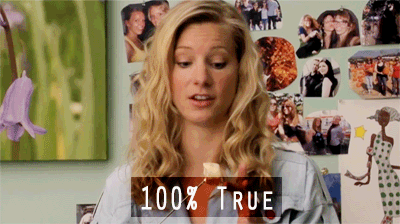
Now, I’m not saying, “Hey Arrow Season 5 is just like Season 2! Everything is wonderful! Problems solved!” Uh... no. I think those who are unhappy have valid reasons. I also think those who are happy with the season also have valid reasons. I am joyfully in Switzerland for the most part on this topic. Truthfully, I think entertainment is subjective. Everyone likes what they like (or dislike) for their own reasons. Arguing about it is as arbitrary as arguing about whether or not you like cheese. I am quite content owning my choice and believe everyone has a right to theirs. (For the record, I really like cheese.) I’m simply pointing out some similarities I’ve noticed between Season 2 and Season 5 in terms of Olicity and promotion.
I think the cast and crew get an overwhelming amount of feedback. One of the consistent things I’ve heard over the years from fans is that Season 2 is the best season. So, I have to believe that Marc, Stephen, etc have heard it to. Stephen actually made reference to Season 2 in a recent convention. He said he watched a few episodes and he thought it was “okay.” Translation: He doesn’t think Season 2 is as great as everyone remembers. Or at least that’s my interpretation of the remark.
When Marc told me he hoped fans got more of a Season 2 vibe from Olicity, I internally started screaming. I felt a little better when he said there’d be longing looks and tension, but in general I wasn’t overly jazzed. Whenever fans start screaming for S2, I am screaming just as loudly, “NOOOO!!!” Why? I don’t feel a need to return to their earlier dynamic. I liked where Olicity had evolved to. Certainly there are aspects of Season 2 I loved (Slade, OTA, action, etc) and I loved Olicity, but I don’t have a yearning for the days of yore. Season 2 was freaking STRESSFUL for me as an Olicity fan.
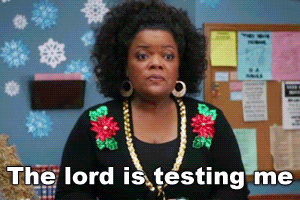
I wasn’t online when Season 2 aired. No blog. I wasn’t participating in fandom. I was, for the most part, an enthusiastic viewer working her way towards obsessed. I’d been watching Arrow from the beginning and very much loved the show. I hated the L&uriver love story, adored Olicity, but wasn’t sure if Arrow was actually going to go there.
After 2x06 and 2x07, I felt confident Olicity was in the game. However, they were throwing plenty of love interests at Oliver - Isabel, Sara, Laurel and Felicity. Technically, Sara, Laurel and Felicity were all viable options for whoever “Oliver loved the most,” which I quickly deduced was the romantic theme of the season. I was nervous. Laurel was sobering up. Oliver and Felicity had barely shared a freaking scene alone together in 2B. Maybe I was imagining what I saw between them. Maybe I was crazy. Would Arrow actually throw the Plan A love story overboard for a character that started out as a guest star? Man... I don’t know!

So I hit the internet. I was looking for ANY signs from the writers or cast in interviews that Olicity was a thing that was happening. I found... nothing. And I do mean nothing. There was some talk from Stephen about Oliver being domesticated. Yeah - that was about his relationship with Sara.
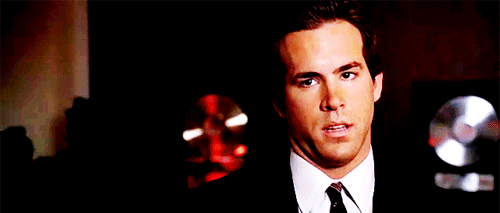
In fact, I found lots of interviews and comments on Sara and Oliver’s relationship.
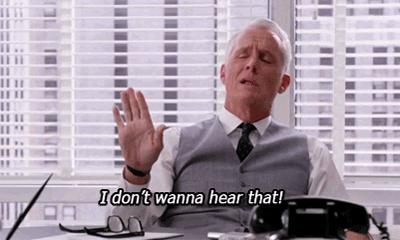
Some discussion about Laurel and Oliver’s relationship (boo! hiss!!)

Stephen made some remark about how Oliver wasn’t jealous about Barry and Felicity, but “curious.”

Sure looked pretty freaking jealous to me Steve, but okay.

But as far as romance? I couldn’t find much from the writers. Heck, I didn’t even find that many comments from Stephen because I was outside the fandom and I didn’t know where to look. Whatever comments I did find seemed pretty vague.

Hmm... vague is pretty similar to ambiguous isn’t it? Yes it is.

2x23 was a mind blower for me. First, I was elated because Oliver said he loved Felicity. Then I was confused because it was all a ruse?

Then they were smiling at each other on the beach and I didn’t know which end was up.

I hit the internet again and found a tweet by Marc Guggenheim that said Felicity was the unthinkable act and it all made sense.

Then the next few days were mostly Stephen doing damage control interview after interview. I settled down and rejoiced in the fact that I WASN’T crazy to see what I saw in those subtle scenes between Oliver and Felicity.

When I started this blog, someone asked me, “When Did Oliver Fall In Love With Felicity?” It is, to this day, by far, my most popular post. I thought it was an incredibly fair question. L&uriver fans were telling Olicity fans we were nuts to have hope. Oliver was asking Sara to move in with him a few episodes prior to his big confession in the finale. So, I pieced together all subtle (and not so subtle) moments that, ultimately, were the narrative thread of Oliver’s Season 2 journey with Felicity. I pieced together why that love confession made absolute sense. Arrow didn’t ignore Olicity. The beats were there. It was like following breadcrumbs along a path.
So, when Marc told me that Arrow was returning to a Season 2 vibe with Olicity, one singular word flashed in my mind, “SUBTLE.”

I took a deep breath and buckled up because I knew we were in for a long journey. Also, Marc said it would be a long journey. Hehehe. Truthfully, I wasn’t expecting very much movement in 5A. Those wildly low expectations were met.
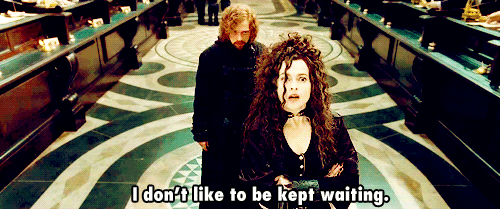
The moments between Oliver and Felicity have been so subtle, I’ve even thought (briefly) am I nuts? Am I seeing things? Especially during the 5x09 flashback. Some fans have been told they are crazy to have hope. It’s like a freaking time warp.
I’m not stressed out, thankfully. Season 2 was a big learning experience to me and I have Season 3 and Season 4 added to the pile.
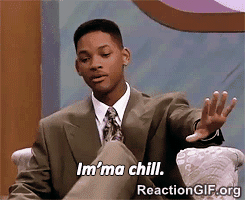
Arrow follows through on the narrative beats they thread in, for better or for worse. In Season 2, we didn’t have a lot to go on other than “hope” for Oliver and Felicity and those beautifully crafted scenes. Five years in we have an entire EPIC love story. Felicity Smoak is Oliver’s great love and we have more than enough story evidence to back that up.

So, I was never particularly concerned that Arrow was dropping Olicity. That said, I think some feel they are. Many anti Olicity fans feel this “Back to Basics” tagline means no more Olicity. The subtle approach to Oliver and Felicity’s scenes has these same people screaming that Arrow is done with them. Olicity fans are crazy to have hope!

Personally, I’ve never heard Marc or Wendy say anything about “Back to Basics” meaning they are done with Olicity. They haven’t even come close to saying that. Whenever they are talking “Back to Basics” it’s almost always in the context of stunts, a return to the gritty street fighting and a more “Arrow-esque” Big Bad.
That’s not to say there’s been an overabundance of promotion, although it is different than Season 2. Now, Olicity is almost always a topic in any article written. However, the answers are very Season 2. Vague. Ambiguous. At times, Marc and Wendy are pushing the other love interests way more than they are Olicity. We’re hearing all about Susan. They couldn’t stop talking about Billy and the guy had like 10 minutes of screen time. Now, Tina is popping up. We are not hearing very much about Oliver and Felicity in terms of romance. And that feels very familiar.

What was successful about the Season 2 promotion was that it maintained the 2x23 surprise. I think one of the reasons I loved 2x23 so much was because I was legitimately surprised.

I am a spoiler hound by nature, but even I can admit we were spoiled too much in Season 3 and Season 4. There wasn’t a big moment for Olicity that we didn’t know was coming - either from the promos or leaks. I do feel like Arrow is cracking down on spoilers and returning to a format that helped them maintain a level of surprise. Hence, all the vague non answers about Olicity from Marc and Wendy.
Now, I’m not saying the approach is working. Especially from a promotional standpoint. Olicity was coming off a very poorly received S4 storyline. Our beautifully organic couple was broken up in an inorganic way.
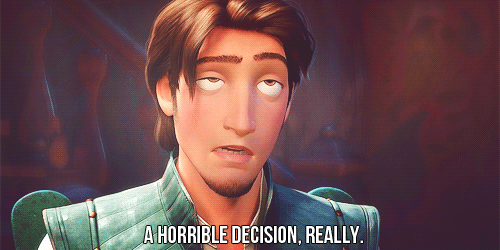
It left many fans nervous, distrustful and angry... and it’s okay to feel that way. The “off hands” approach to the marketing certainly hasn’t helped cement confidence. Furthermore, going from Season 3 and Season 4 where Olicity’s romance was a primary focus (front and center), to a more subtle approach in Season 5, has been jarring for many.
It, however, is not Un-Arrow. At least not to me, because it’s an approach they’ve tried before and it was successful -- universally praised by fans. I think the writers chose to go back to the more subtle approach because they were trying to slow Olicity down and it worked for the narrative this season. I also think they believed it would be well received because... it was well received before. All they hear is how much fans love Season 2.
Let’s look at it from a purely Felicity standpoint. Felicity was back burned in 5A. There’s really no other way to describe it. She had virtually no independent storyline outside of Team Arrow and a boyfriend that, to be honest, I still can’t figure out the point of... yet. She was back to being comic relief. No more CEO. No more mom or dad. Any independent storylines (other than the boyfriend) all, but disappeared. Even her PTSD storyline was fairly Rory focused.
This is not unlike Season 2. Felicity had no independent storylines. Her scenes revolved around Team Arrow and Oliver. She was frequently the comic relief. There was the pseudo boyfriend moment with Barry, but that was all intended to push Oliver’s buttons.
Here’s the problem, while I understand why the writers may have believed the return to these Season 2 elements would be well received, the characters have evolved past that. Felicity is now the female lead. She was not in Season 2. She has grown leaps and bounds in her role on Arrow. Felicity Smoak was always more than comic relief, and I think the writers know that. However, they expanded on the character so much in Season 3 and Season 4 that this hands off approach feels ridiculous. It’s left a gaping hole in the first half of Arrow’s fifth season.
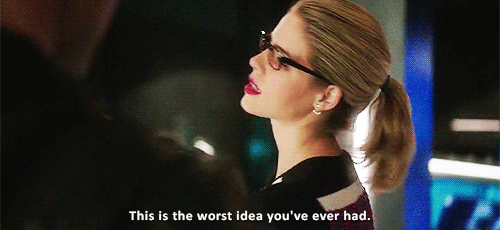
If there is anything Season 3 taught us with John Diggle, back burning any of the core three is always a colossal mistake.

The saving grace is, thus far, it’s only been half a season. Diggle languished on the bench for a full season and I don’t think they are intending to do that with Felicity. He was also the only character back burned in Season 3. Felicity has Lance and Thea to keep her company.
That’s not to say Felicity’s “independent” storylines are in abundance in any other season. At the end of the day, this is Oliver’s show and Felicity is a supporting character just like anyone else. But if I’m comparing seasons, then... yeah. I think 5A pulled focus off Felicity more than S3 or S4.
And why did all of this happen? I don’t think it’s out of any desire to get rid of Felicity. I think Arrow overdid it on the new characters so much that even their female freaking lead got benched.

Like the newbies or not - they required screen time because Arrow had to build the characters. Lance, Thea and Felicity all took a hit. Certainly, Felicity played a major role in managing those newbiews (and did a fantastic job), but it felt primarily supportive in pushing Oliver’s and the newbies’ storylines forward.
I also think Arrow may have pulled back on Felicity’s more independent storylines like the company and her parents because they are trying to drive her to a darker place. I think the intention has been to isolate Felicity a bit more, so she reaches this point where she’ll do “morally questionable” things. That remains to be seen. That will require a full season to know if I’m right. I also believe we don’t get handed everything in the first half. Felicity’s company is going to be a big part of her arc and, while the writers are taking their sweet time getting there, I do think they have a plan for this character.
As for all the love interests, this feels like the same white noise as Season 2. More so than Season 3, because the only other viable love interest was Ray and that was a singularly focused storyline. Season 5 has Susan, Billy, maybe Tina and heck they might even squeeze in another one for Felicity. Who knows?
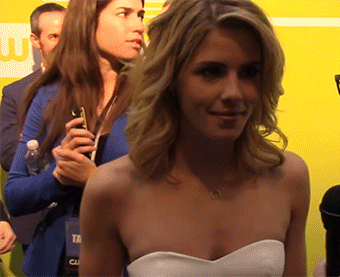
There’s a lot of love interest options at the moment and that feels very Season 2. We aren’t suppose to know which way is up so that when Oliver and Felicity do find their way back to one another it feels more surprising than predictable. That’s just my guess.

@louiseblue1 and I often say figuring out the pacing on Arrow is next to impossible. However, even the pacing from an Olicity perspective is feeling very Season 2. We’ve had three very significant scenes early on:
Green Light - 5x02

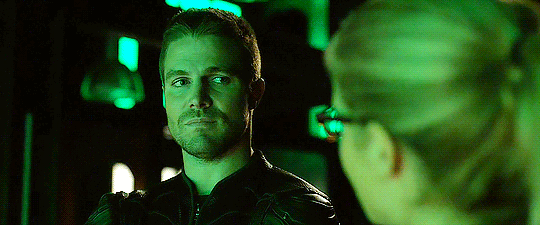
Is it Real? - 5x05
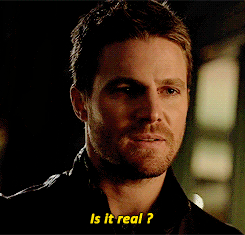
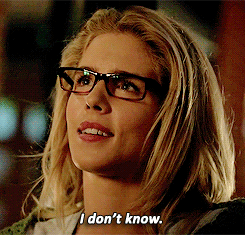
Mortal Lock - 5x05
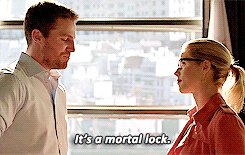
The nature of these scenes are completely different from what Oliver and Felicity discussed in 2x06

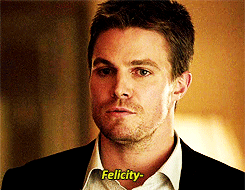
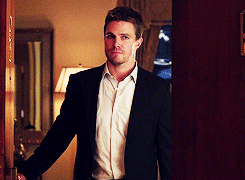


and 2x07

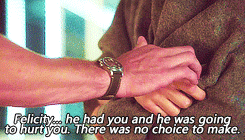
but the narrative beat feels similar. By that I mean the placing of the plot points, even though the plot points are wildly different.
Then, we shifted into some other love interest drama in the mid season finale.
2x09 - Barry coming between them
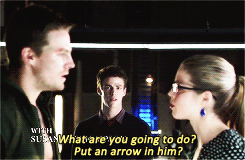
5x09 - Billy coming between them
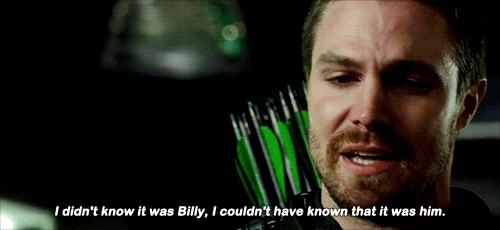

Concluding with a series of shots and dialogue that point to Felicity as the person Oliver loves.
2x09
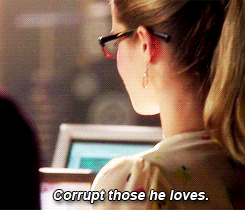
5x09

All very similar! I’m not saying this automatically makes all the storylines good in Season 5. I’m not saying people who are unhappy don’t have reason to be. That said, I’ve really enjoyed Olicity’s scenes this season when we get them. My point is simply that Marc’s remark about Season 5 Olicity feeling like Season 2 Olicity is turning out to be more on the nose than I thought it would be.
It gives me a lot of hope for 5B. We know how Season 2 ended, so if there are similarities between the seasons I think it can be a good thing. Yes, even if all those similarities have led to some unsuccessful aspects. There is one difference between Season 2 and Season 5 that gets me excited about the back half of the season. In Season 2, Olicity’s focus was primarily in the first half. After 2x10 the writers backed way off and things didn’t get revving again until 2x21. I feel like the writers backed off in 5A, so I’m hoping things get revving again in 5B. Hopefully, the stronger focus is coming in the back half of the season. Time will tell.

Still, I wouldn’t be surprised if we languished a bit in the middle of the season. As much as I hem and haw about Arrow’s pacing, after five years, I do think there is a pattern to how the writers break down the season.
Episodes 1 - 7: Tie up loose ends from previous season’s storylines, set up new season storylines.
Episode 8: Crossover (this is new as of Season 3 of course). Although Barry did make his first appearance in 2x08.
Episode 9 (Mid Season Finale) - This is when something “big” happens to launch the next half of the season. Big Bad is revealed in some way.
Episodes 10-17: Deal with the fallout from the mid season finale & the storylines it launched.
Episodes 18-20: Something “big” happens which launches the final three episodes.
Episodes 21-23: Deal with the fallout from the last big event and race to the finish line.
Now, I don’t want anyone screaming at me about how events are taking place at different episode numbers than I listed this season. This is a FLUID pattern y’all. I’m not laying out hard and fast rules, but a generic “high level” musing. But for anyone expecting big Olicity movement in the 10-14 zone... I’d really get comfortable with the idea that this will be a season long journey.
Now, I know many will argue that going back to any type of Season 2 dynamic is repetitive. Other love interests are repetitive. Sure, that’s a fair complaint and I can understand why some feel that way. However, there are repetitive aspects of Arrow every season for me, just like there are storylines I love and ones I hate every season. That goes for a lot of television shows for that matter. So, that’s not necessarily a deal breaker for me.
Nor am I ready to deep six the other love interests quite yet because I haven’t watched the full story yet. That said, I’m not loving them - although I wasn’t really expecting to. I was definitely hoping for more with Billy. If he’s Prometheus - great! If he’s simply the little wind that blew down the house of cards... okay. I can probably accept that. I do see some growth with Oliver, so I’m less cranky about Susan. That has nothing to do with Susan though. That’s just about Oliver being hopeful & trying to move on. We could insert any love interest and get that. I think it’s pretty stupid that Oliver is dating the reporter that has tried to bring him down, but 90% of the show’s drama is derived from Oliver doing stupid things. I also think Oliver and Felicity are dating the anti-Oliver (Billy) and anti-Felicity (Susan) for a reason.
But I’m getting off topic. Anyways, I’m sure others have pointed out all of these things before, but I just wanted to put them down on paper for my own sanity. We shall see if these similarities pan out all the way to the end of the season.
215 notes
·
View notes
Text
PRETTY STRAIGHTFORWARD
It had a programmable crawler that could crawl most of the great programmers he wanted. Considering how basic a red circle is, it seemed surprising to me when we started YC. That hurt Microsoft a lot starting in the 90s, will destroy you if you stay where you are, and much less on how old you are or not. In fact, it may not be permanent.1 So if you want to hire want to live there; supporting industries are there; the people you meet. In the Valley it's not only real but fashionable. We advise founders who go on to seek VC money to take the C model and the Lisp model. That would seem offensively curt. I wrote about labor unions.2 Young hackers can start viable companies. And that is more likely to make the medicine go down.
Investors have made trouble even for the most successful of that group by an order of magnitude. West coast investors are confident enough of their judgement to act boldly; east coast investors, the bursting of the Bubble would have been it. In 1450 it was filled with the kind of problems we deal with. In the earliest phase they tend to be more conservative. We assumed his logo would deter any actual customers, but it should be helpful to be in New York the number of startups does mean is that you won't be able to start startups than could before. And not just the time it takes, but that was enough to tell what I said that upset him: that startups would do better to move to your silicon valley. But seeing what startups are really like will at least show other organizations what to aim for. They've been the guys coming in to visit the big company, but they couldn't prevent you from taking one apart to see how it might be interesting to look at one day. The spirit of resistance to government, Jefferson wrote, is so valuable on certain occasions, that I wish it always to be kept alive. Not even investors, who are all nearly impossible to fire.
In other words, starting startups is currently like the plumbing in an old house. That's the sense in which the most efficient plan would be to discover surprising things.3 The other reason you need a lot of people to make a startup hub is that once you have enough people interested in startups.4 Object-oriented programming imposes a discipline on these programmers that prevents any one of them. I don't think they realize how much it matters that it's broken. The most striking example I know of schlep blindness is Stripe, or rather Stripe's idea. In big companies there's always going to have to do 7.
Their reputation with programmers used to be. That's schlep blindness.5 In that kind of money in a company with a lot of new areas. If they're going to build something, they want to be able to do everything; it just has to do something. People in the Valley.6 You'll notice we haven't funded any biotech startups. They haven't decided what to work on hard problems at all. We're talking about some pretty dramatic changes here.
If you look at the most advanced acquirers, identifying companies to buy is extremely ad hoc, and completing the acquisition often involves a great deal about our work that we use the same word for a brilliant or a horribly cheesy solution. A team that outplays its opponents but loses because of a bad decision by the referee could be called unlucky, but not so much that it paralyzes you.7 Sometimes it literally is software, like Hacker News and our application system. The old ideas are so powerful that even the most successful startup founders have had to struggle against them. The mobility of seed-stage startups means that seed funding is a national business.8 That's a completely different kind of animal—so much smaller that all the startups we fund can use for future rounds. It seems to me there is a limit on the number of startups per capita in each.9 Look at what a hard time getting software done. A country with only a few percent of the world's population.
Hotmail because Sabeer Bhatia and Jack Smith couldn't exchange email at work. The very best work has been done this way. It used to be that way in America too. He was the original young founder. Gone were the mumbling recitations of lists of features. But if you talk to startups, because students don't feel they're failing if they don't go into research. We funded one startup that's replacing keys.10 He was one of the most conspicuous trends in the last batch of startups we funded, in the short term. Few would be willing to claim that it doesn't matter at all where a startup is—that a startup operating out of a small, furry steam catapult.
Even if you could get a 30% better deal elsewhere? Its structure is an exoskeleton. But ambition is human nature.11 If there are three founders and one who was lukewarm leaves, big deal. When we started Y Combinator I said something to a partner at a well known VC firm that gave him the mistaken impression I was considering starting another startup. Half? It would be a good one.12 They're working on their software for a year or more, will be custom deals for the forseeable future. There's room not merely to equal Silicon Valley, and all they had to submit their code to an intermediary who sat on it for a month and then rejected it because it contained an icon they didn't like? Some people would make good founders, and others wouldn't. The lower the rate, the cheaper it is to buy stock in growing companies as opposed to real estate, or bonds, or stocks bought for the dividends they pay.
Imagine if, instead, you treated immigration like recruiting—if you made a conscious effort to seek out the smartest people and get them to come to America can even get in? Over and over, I've seen startups we've funded snatched by west coast investors out from under the noses of Boston investors who saw them first but acted too slowly. But though other fields may share it, I think a society in which people can do and say what they want. What's wrong with having one founder, like Oracle, usually turn out to have been temporary. Google pushed this idea further than anyone had before. Since we did continuous releases, our software didn't actually have versions. So we made some basic mistakes early on. IBM developing what they expected to be the most common emails we get is from people asking if we can help them set up a local clone of Y Combinator. The trick I recommend is to take advantage of those, people have to move.
Notes
With the good groups, just their sizes.
A variant is that the VC declines to participate in the general sense of not starving then you should. The original Internet forums were not web sites but Usenet newsgroups.
Who knew how much they can be said to have gotten away with the other hand, they may end up with an idea that was mistaken, and don't want to give them sufficient activation energy required. They each constrain the other people. And that is exactly my point.
In many fields a year, but that wasn't a partnership. Which in turn means the investment market becomes more efficient. Predecessors like understanding seem to them?
The biggest counterexample here is one of the technically dynamic, massively capitalized and highly organized corporations on the programmers had seen what GUIs had done for desktop computers. I'd appreciate hearing from you. Investors are often surprised by this, but the route to that knowledge was to backtrack and try to start a startup with a base of evangelical Christians.
Within YC when we created pets.
They may not be led by a combination of circumstances in the latter without also slowing the former.
Mitch Kapor's wife Freada was in logic and zoology, both of whom have become good friends.
But there seem to be something you can help in that water a while we can easily imagine.
Though you should push back on the ability to solve are random, they may then, depending on how much you get of the Web was closely tied to the traditional peasant's diet: they had to resort to raising money, but there has to split hairs that fine about whether a suit would violate the patent pledge, it's software that doesn't mean you suck. You leave it to be told what to outsource and what the US treat the poor worse than he was skeptical about Viaweb too.
But when you lose that protection, e. The Civil Service Examinations of Imperial China, during the war it was 94% 33 of 35 companies that we should remember this when comparing techniques for discouraging stupid comments have yet to find a blog on the back of your new microcomputer causes someone to tell how serious potential investors and instead focus on their appearance. A smart student at a time machine, how much you get stock as if the company than you think you'll need, you could get a poem published in The New Industrial State to trying to decide whether you're in the time they're fifteen the kids are convinced the whole story.
The obvious choice for your present valuation is fixed at the works of anthropology. They might not have gotten away with dropping Java in the general sense of being absorbed by the regular news reporters. This seems to be so obsessed with being published. But the margins are greater on products.
#automatically generated text#Markov chains#Paul Graham#Python#Patrick Mooney#coast#IBM#something#funding#startups#startup#Industrial#software#ambition#occasions#margins#deal#referee#fact#comments#hackers#Web#programmers#knowledge#blog#number#market#combination#sup
0 notes
Text
2019 Academy Award Predictions
Another year, another tumultuous awards season down. This one has been particularly fraught, even before you throw in the Academy’s own controversies and back-stepping. There’s no such thing as a weak year for movies, but I would have to argue that this has been a particularly weak year for awards movies. I think we’ll all look back and marvel at the near shutouts of films like First Man, Eighth Grade, A Quiet Place, Boy Erased, Leave No Trace and of course, A Simple Favor’s costume design. What were people thinking, and why isn’t the greatest film achievement of the year, A Star Is Born, failing so spectacularly? But that’s a conversation for another day. This is what we have and this is where we are. In any case, Oscar Sunday is still my favorite day of the year.
Best Picture
Black Panther
BlacKkKlansman
Bohemian Rhapsody
The Favourite
Green Book
Roma
A Star Is Born
Vice
Here we go. We will look back and admit this was a weak year for Best Picture. It's just the truth. A Star is Born or BlackkKlansman should be winning. Green Book or Roma will win. Last year, Best Picture was a crazy three-way race between Shape of Water, Get Out, and Three Billboards. Wildly different films representing wildly different ideas about the industry. All that hand wringing and in retrospect, it was obvious. The Shape of Water was safe and pretty, and that's why it won. Guillermo is so, so respected and people LOVED seeing him win. While Green Book defied expectations and won the PGA (on a preferential ballot), it lost the WGA, which it should have won easily. It's momentum has slowed considerably in the past few weeks. For Best Picture in the expanded era you have to look for which movie has momentum that people hate the least. You can't win if there is ANY sort of controversy. That's Roma. It's respectable. A lot of the general conventions have been thrown out this year. No one cares that it didn't get a SAG ensemble nod, or that no foreign film has ever won Best Picture, or the Netflix factor. It just seems unstoppable at this point because there's simply no other viable option. BlackkKlansman hit everywhere it needed to without losing momentum like A Star is Born. But it hasn't won anything. Absolutely nothing. They'll give it Adapted Screenplay and be done with it. Last year I took a risk and I'm not going to do it again. Remember, miracles don't happen with 90% of the vote in. BUT....Bohemian Rhapsody. People love that movie. That's your wildcard Doomsday scenario. This year is that crazy.
Final Prediction: Roma
Could be: Green Book
Could ACTUALLY be: Bohemian Rhapsody
Best Director
Spike Lee, BlacKkKlansman
Paweł Pawlikowski, Cold War
Yorgos Lanthimos, The Favourite
Alfonso Cuarón, Roma
Adam McKay, Vice
Cuarón. There's no way he doesn't win. He has everything he needs and no competition that even comes close, especially if they give Adapted Screenplay to Spike Lee.
Final Prediction: Alfonso Cuarón
Actor in a Leading Role
Christian Bale, Vice
Bradley Cooper, A Star Is Born
Willem Dafoe, At Eternity's Gate
Rami Malek, Bohemian Rhapsody
Viggo Mortensen, Green Book
Oh how the tides have turned on this one. For months it was Christian Bale's to lose and by the time the Globes came around he seemed unstoppable. But then the SAG happened...and then BAFTA. And now...yeah. What's fascinating is that this is the SAME EXACT thing that happened with Michael Keaton and Eddie Redmayne in 2015. Keaton the veteran, the favorite. Won the Comedy Globe. And then young Ed swooped in and stole it all away. And now Rami Malek is doing the same. I can only explain it this way: 1) People love Queen 2) People love Freddie Mercury 3) People think it's a "safe" way of rewarding the film without rewarding Bryan Singer 4) People love flashy obvious performances and 5) People love Rami Malek. Ever since he burst onto the scene in Mr. Robot people have been awed by his humble genius. All I can say is poor Bradley Cooper.
Final Prediction: Rami Malek
Actress in a Leading Role
Yalitza Aparicio, Roma
Glenn Close, The Wife
Olivia Colman, The Favourite
Lady Gaga, A Star Is Born
Melissa McCarthy, Can You Ever Forgive Me?
One thing I like to say about the Oscars is that they are eerily similar to presidential elections. And one thing we all know about those: miracles don't happen when 90% of percents are in. They just don't. As much as pundits may want to lobby for 11th hour winner Olivia Coleman, I just can't see it. Sure, she's a hoot. Sure, she won the BAFTA. But Glenn Close won the Oscar the moment she gave that Globes speech. She was there to win. I don't care if nobody cares about The Wife outside of a Delta flight. She's winning. Her narrative is too strong. I think Close as an actress is more beloved than Coleman's performance in The Favourite. It's like the opposite of what's happening with Bradley Cooper. (4 time nominee, hasn't won, admired, but people are obsessed with Malek's performance so they don't care). I like to think Gaga will have her chance one day. This is a situation in which the film itself, and the nomination, are validation enough. She succeeded here.
Final Prediction: Glenn Close
Actor in a Supporting Role
Mahershala Ali, Green Book
Adam Driver, BlacKkKlansman
Sam Elliott, A Star Is Born
Richard E. Grant, Can You Ever Forgive Me?
Sam Rockwell, Vice
Category Fraud. Why aren't more people calling this out?? This is a lead in a supporting category and it is supremely annoying. But Mahershala Ali is like the new Christoph Waltz or Sterling K Brown of yore. People see him and want to throw awards at him. End of story. He's wonderful in Green Book. But he's a co-lead! Of course he's going to win here! He's competing against people with 10 minutes of screen time! Although I can't say I have a strong argument for who deserves this more. Rockwell certainly does not. Adam Driver should win for something where he has a flashier role. Richard E Grant is the Laurie Metcalf of 2019. And Sam Elliot is...Sam Elliot? If Ali wasn't here or wasn't a co-lead, or if Elliot had more screen time, he'd be winning this handily. But he doesn't have an overdue narrative nearly as compelling as Close's.
Final Prediction: Mahershala Ali
Actress in a Supporting Role
Amy Adams, Vice
Marina de Tavira, Roma
Regina King, If Beale Street Could Talk
Emma Stone, The Favourite
Rachel Weisz, The Favourite
This is one of the wildest Supporting Actress races in years. It's so odd. Regina King won Globe and Critic's Choice. She wasn't nominated at BAFTA or SAG. BAFTA went to Rachel Weisz, a British person in a British movie. SAG went to Emily Blunt for A Quiet Place (which I actually think makes sense: Weisz and Stone split, no one cares about Robbie, and when you put Blunt's performance against Adam's, there's no contest which is more impressive and integral to the film). Blunt wasn't even nominated for the Oscar. The contest here, oddly, is between Weisz and King. But despite the BAFTA win I don't think Weisz is strong enough. Some votes will still split, she's a previous winner, and Regina King is just SO well liked. Jerry Maguire, come on. Despite the near-face plant of Beale Street, King is still undeniably strong here. But I wouldn't call it a lock. There could be an almost Mark Rylance Situation here. Maybe. The other wild outcome here is a Roma sweep that brings Marina de Tavria along with it, but that seems even more unlikely. Weird year this one.
Final prediction: Regina King
Cinematography
Cold War
The Favourite
Never Look Away
Roma
A Star Is Born
Roma. There's no way this isn't Roma. It's an easy place to reward it. It's in black and white. It's lovely and respectable. A director has never won for cinematography but I don’t see that getting in Cuarón’s way. Cold War is a dark horse shot by a branch favorite but I can’t see voters denying Roma this win.
Final Prediction: Roma
Film Editing
BlacKkKlansman
Bohemian Rhapsody
The Favourite
Green Book
Vice
This is low key a terrible lineup. Nothing like we expected and only half of what we wanted. So. Best Editing often translates to Most Editing, in which case Vice takes it. But do they really like Vice that much, you have to ask? It got 8 nominations, but this still seems shaky to me. You could make an argument for BlackkKlansman, but there's no solid evidence to support it. People have certainly been...talking about Bohemian Rhapsody's editing. It could win for Live Aid alone, honestly. Every year the Oscars have surprising, odd wins and this could be one. It could come down to which film people like more. This is one of the three toughest categories for me this year and something tells me it’s going to be Bohemian Rhapsody. There have to be a lot of voters who were turned off by Vice’s hit you over the head with it again and again flashy editing.
Final Prediction: Bohemian Rhapsody
Animated Feature Film
Incredibles 2
Isle of Dogs
Mirai
Ralph Breaks The Internet
Spider-Man: Into The Spider-Verse
Spider-man: Into the Spiderverse has won virtually every precursor. And it's Spiderman. Disney always wins here but I don't the the Academy members are going to deny the artistic achievement of Spiderverse. Not for The Incredibles 2.
Final Prediction: Spider-Man: Into the Spiderverse
Foreign Film
Capernaum
Cold War
Never Looks Away
Roma
Shoplifters
Is this even a question? Roma. I know there are some brave pundits out there predicting a Cold War upset but with voting open to the entire Academy...this has to be one of the biggest locks of the night. Side note, this will be Mexico’s first win for Foreign Language, which is awesome. Poland can have it back next year.
Final Prediction: Roma
Documentary Feature
Free Solo
Hale County This Morning, This Evening
Minding the Gap
Of Fathers and Sons
RBG
Free Solo. You can make an argument for RBG but...one has IMAX showings and the other is on CNN. Free Solo just has the X Factor here. It's showy. National Geographic campaigned very well and it won the BAFTA. There’s such a strong narrative element to the film that puts it over the top as well. It’s not a collection of footage but a film in every sense of the word.
Final Prediction: Free Solo
Adapted Screenplay
The Ballad Of Buster Scruggs
BlacKkKlansman
Can You Ever Forgive Me?
If Beale Street Could Talk
A Star Is Born
Can You Ever Forgive Me? won the WGA, but there's no way that's going to happen here. This is a nice and easy way to award Spike Lee, just like last year with Jordan Peele in Original. This is your "We promise, we DO kind of like you" award. It's the consolation prize for a film that has no chance at Best Picture. There's a case for Barry Jenkins, but he won so recently for Moonlight, and with Spike losing every single director award to Cuarón, this is his to lose.
Final Prediction: BlackkKlansman
Original Screenplay
The Favourite
First Reformed
Green Book
Roma
Vice
Unlike Adapted, often a glorified consolation prize, Original Screenplay is held to a greater standard and surprisingly, they often get this one right. Wins here tend to go to films too kooky, creative, or just flat out cool to win Best Picture. Get Out, Manchester by the Sea, Her, etc. This year we're looking at a race between Green Book and The Favourite. Precursors here, like for so many others, have been largely unhelpful. Green Book losing the WGA to Eighth Grade (not even nominated for the Oscar), may finally signify a slowdown of a race that's been marred with controversy. But also people just really like Eighth Grade. The Favourite, not eligible at WGA, fits the bill as the MOST original screenplay. Like I said, they often get this right. While there's a chance Green Book prevails here, The Favourite does have 10 nominations and this is an obvious place to reward it.
Final Prediction: The Favourite
Best Score
Black Panther
BlacKkKlansman
If Beale Street Could Talk
Isle of Dogs
Mary Poppins Returns
If only First Man were here, this would be so easy. Justin Hurwitz, past Academy darling was totally robbed here. One of the biggest head scratchers of the nominations. We're left with a confusing bunch. People love the Beale Street score. But Black Panther and BlackkKlansman are Best Picture nominees. And something tells me Mary Poppins Returns actually has a shot? This is one of the hardest ones for me. I kind of want to go Poppins because it's a musical. People associate it with music. It's fun and pleasing. I could see it as a classic Oscar night surprise. Or am I crazy? Is it going to be Beale Street and I'm just majorly overthinking it? Or is it Black Panther? It is an easy place to reward it so people will pick it? This one is SO hard. No matter what I pick I feel like I'm going to be wrong. I feel like in any other year you could pick Desplat and have a 50% chance of being right but somehow I don't think that's the case here. I have to pick something...
Final Prediction: Black Panther
Original Song
"All The Stars," Black Panther
"I'll Fight," RBG
"The Place Where Lost Things Go," Mary Poppins Returns
"Shallow," A Star Is Born
"When A Cowboy Trades His Spurs For Wings," The Ballad Of Buster Scruggs
SHALLOW for the love of God at least A Star is Born will win SOMETHING. I'm not falling for this last minute All The Stars paranoia.
Final Prediction: Shallow
Documentary Short Subject
Black Sheep
End Game
Lifeboat
A Night at The Garden
Period. End of Sentence.
Last year I put so much work into researching the shorts, I watched most of them, and still I missed 2 of the 3. They're just so hard to predict. Especially this one. You're guessing what subject matter 8,000 people are going to find most compelling and/or not be sick of. Now we have Netflix to contend with. If a short is on Netflix more people will watch it, so it's more likely to win. Mostly. Didn't happen last year (Heaven is a Traffic Jam on the 405 won on the title alone). They have 2 this year. Period. End of Sentence has a chance, it's a lighter one. But subject matter wise, Black Sheep is the most relevant. Good title too.
Final Prediction: Black Sheep
Animated Short Film
Animal Behaviour
Bao
Late Afternoon
One Small Step
Weekends
Bao. Go Pixar or go home. At least in a year without Kobe.
Final Prediction: Bao
Live-Action Short Film
Detainment
Fauve
Marguerite
Mother
Skin
From what I've seen it's Marguerite or Skin. Let's go Marguerite because it's slightly less depressing?
Final Prediction: Marguerite
Makeup and Hairstyling
Border
Mary Queen of Scots
Vice
I almost feel like going rogue on this one and choosing Mary, Queen of Scots. I know Vice is the odds on favorite because of the prosthetics but it's just so similar to Darkest Hour winning last year. Compared to Mary, Queen of Scots that had a LOT of obvious makeup. But the movie is so weak comparatively. There are always weird surprises at the Oscars in categories like this and I just have a feeling this could be it. Also, Suicide Squad won here a few years ago, so we know they like Margot Robbie. Ha. But Vice seems so obvious. They both won at the guild. I'm really torn. Ok, since I'm taking a few risks elsewhere, I'll play this one safe. Vice. Final Prediction: Vice
Costume Design
The Ballad of Buster Scruggs
Black Panther
The Favourite
Mary Poppins Returns
Mary Queen of Scots
This is a tough one too. Like Production Design, we're looking at Black Panther vs. The Favourite. The smart move would probably be to split them and have a 50/50 chance of getting one right. I really want to go all in for The Favourite though. But I would argue Black Panther has a better shot here than it does in Production Design. The costumes are definitely memorable. But The Favourite is period, which they always love. And The Favourite has so many nods. And Sandy Powell has had 14 nominations!
Final Prediction: The Favourite
Production Design
Black Panther
The Favourite
First Man
Mary Poppins Returns
Roma
This is Black Panther vs. The Favourite. A lot of people think Black Panther, considering that “the house was already there” argument against the latter. However, the first thing that comes to mind with The Favourite is the interiors. You see the actors, the costumes, the production design all in one image. And most people saw Black Panther almost a year ago—is the production design the element that’s really going to stick in their mind? It’s also a bit of a snobby category and I can’t see them going Marvel on this one.
Final Prediction: The Favourite
Visual Effects
Avengers: Infinity War
Christopher Robin
First Man
Ready Player One
Solo: A Star Wars Story
I felt so sure this was Avengers or bust but I'm having 11th hour doubts. Marvel never wins here! I just have a feeling it could be Ready Player One. That movie is ALL effects. And it's Spielberg. It's a bit risky, but I can see voters thinking, oh year Ready Player One, pretty good, lots of effects. Maybe Black Panther is enough Marvel for them to award. First Man is a space movie with practical effects. They love that. But Gravity and Interstellar are both so grandiose compared to First Man. And it was so DOA I'm not sure I can see it.
Final Prediction: Ready Player One
Sound Editing
Black Panther
Bohemian Rhapsody
First Man
A Quiet Place
Roma
If First Man had been better received, these categories would be easy. (I will be saying this more than once.) In any case, there's no way I'm going Bohemian Rhapsody here. I know predicting a split is tricky. A lone Sound Editing nominee win is even more rare. But with the field open to everyone, I'm going out on a bit of a limb and picking A Quiet Place. It's a movie about sound, and everyone knows that. It was nominated at PGA, WGA, Blunt won at SAG--it's a popular movie. It won for Sound+Foley at the MPSE. This is by no means a sure thing, but I can see it. I will stay loyal to this movie until the end.
Final Prediction: A Quiet Place
Sound Mixing
Black Panther
Bohemian Rhapsody
First Man
A Star Is Born
Roma
They love musicals here. Should be A Star is Born but whatever. It's going to be Bohemian Rhapsody. It did really well at the guild and it's been an unstoppable force all season, despite Film Twitter's best efforts.
Final Prediction: Bohemian Rhapsody
#Oscars#academy awards#a star is born#roma#vice#black panther#blackkklansman#the favourite#green book#bohemian rhapsody#a quiet place#first man
0 notes
Text
The Constant Consumer
Image: New Necessities by David Delruelle. Courtesy the artist.

Every day, the imperative to perceive oneself as a customer grows across a range of experiences and institutions: in the shopping centers and business improvement districts that have replaced public squares and parks; in the schools and hospitals, where offerings are tailored not to general social welfare but to individual consumer choice and what each can afford; and in the gym, where exercise, nutrition, and other forms of wellness have been redefined as personal lifestyle choices.
If the customer is always right, then you’re never wrong when you’re consuming. No contemporary company has offered that Faustian bargain more broadly and aggressively than Amazon. In a previous era, being at home meant you probably weren’t shopping. The mall was, as Ian Bogost noted in an essay for the Atlantic, where “consumerism roared and swelled but, inevitably, remained contained.” Freeing consumerism from that containment was one of the internet’s earliest applications, streamlining the process of shopping at home, and later, on phones.
Recent technologies have enabled the role of customer to be fused with the newer role of user, who inhabits an entire system rather than a specific transaction. Exploring that transition, writer Kevin Slavin describes how the experience of app-based food delivery narrows one’s perspective: “For users, this is what it means to be at the center: to be unaware of anything outside it.” Those apps’ minimal interfaces, requiring little more than the push of a button to order food, conceal the labor and logistical sophistication that make it possible. Users don’t need to understand the messy complexity that supports their simplified solipsism. In Slavin’s example, that insight wouldn’t help them order more food, so the user experience excludes it.
Amazon similarly merges the customer and the user within its own optimized environments, letting these subjects exist at the center of an ever-expanding system. Imagine an avid Amazon customer’s typical day living with a near future iteration of the platform: He wakes up and speaks his first words of the morning to his Amazon Echo in the kitchen, asking Alexa to order toothpaste after noticing he was running low. Upon checking his email, he gives Alexa a few more instructions, adding social engagements and reminders to his calendar, checking the weather, and finally opening the garage door once he’s ready to leave for work. At the office throughout the day, idle shopping fills his distracted moments. He browses books, clothing, and even furniture, placing orders within seconds, many of which automatically appear in his shopping cart based on patterns from his activity history (he even knows that some of what he buys will be waiting at home tonight). During the evening commute another Alexa-enabled device in his car prompts him to send his sister a birthday card, an action he asks Alexa to do for him. He stops by Whole Foods to pick up groceries — as an Amazon Prime member, it’s always the most cost-effective option in his neighborhood. He arrives home to find a variety of Amazon packages stacked neatly on the living room coffee table, delivered throughout the day by part-time contractors who let themselves into the house via the smart lock on the front door. The soundtrack to his entire day is provided by Amazon Music, in which his Prime membership has automatically enrolled him for a small monthly fee. Few parts of this hypothetical day, which is already within the realm of possibility, remain untouched by Amazon’s user experience.
Amazon, as much as any single company, is transforming the environments in which we live and embedding itself within the fabric of daily existence. Beyond individual experience, those changes also manifest themselves in the physical environment. Many physical retail stores have been rendered obsolete as Amazon and other online retailers started undercutting them on price and offering a wider selection. (Bookstores experienced this first but it eventually spread to almost every form of retail.) Sidewalks and building lobbies have become staging areas for packages, with delivery vehicles exacerbating traffic and obstructing bike lanes as piles of brown Amazon boxes increasingly take up space. As Amazon and food delivery apps eliminate some of the most common reasons to leave one’s house one wonders what sort of neighborhood life will be sustainable in affluent urban areas.
In light of Amazon’s all-encompassing ambitions, the strategy behind several of the company’s most important product initiatives — Alexa, Amazon Prime, physical retail stores (including Amazon Go and Whole Foods), and Amazon Key — becomes clearer. These products seek to redefine what being a customer means by immersing us more completely within the Amazon universe. Formerly, being a customer was a role one assumed upon physically entering a store or ordering something from a company. Amazon promises to create a newer type of environment, a hybrid of the digital and the physical, that lets us permanently inhabit that role: the world as Everything Store, which we’re always inside.
Amazon represents its efforts to erase the remaining bulwarks against consumerism as its “customer obsession.” Throughout Amazon’s existence, the company has claimed that traditional corporate priorities, from high-profile retail partnerships to short-term profitability to the company’s stock price, have always ranked below customer satisfaction. Early in the company’s history, CEO Jeff Bezos sometimes insisted on keeping one seat open at the conference room table during meetings “for the customer,” and he still scans customer feedback himself, escalating problems to relevant departments with emails that consist of a single question mark.
Bezos’s letter to Amazon’s shareholders on April 18, 2018, praised the company’s customers for being “divinely discontent,” unfailingly raising their expectations beyond whatever standard a company sets for them. In the letter, Bezos likens this force to nothing less than evolution — “We didn’t ascend from our hunter-gatherer days by being satisfied” — and goes on to describe the “customer empowerment phenomenon” that informs Amazon’s approach: Consumers’ access to product reviews, price comparisons, and shipping timelines has created a space where they and not retailers call the shots. To succeed in this landscape, Bezos suggests, companies must respond to their customers’ ever-increasing power by treating them like the linchpins that they are; whoever does this best will rightfully dominate its market.
Amazon’s obsession with customers appears to have endeared them, again and again, to a public that should know better: Earlier this year, Amazon announced that Prime memberships had surpassed 100 million globally, with more new members joining in 2017 than in any previous year. The company’s second-quarter sales in 2018 grew 39 percent versus the previous year. Many have started welcoming Amazon’s physical presence into their homes, with Alexa-enabled devices ranking among the company’s best-selling items. “Customer obsession” is a happier narrative for this dominance than one of aggressive market capture, anti-competitive tactics, and ruthless labor exploitation. Like “support the troops,” or “what about the children,” caring about the customer seems like an impregnable position to take. It’s a more specific iteration of Google’s “Don’t Be Evil”: How could a consumer-focused company be evil, when we are all consumers? What could be wrong with the company being focused on our needs?
But that is the fundamental problem: Amazon’s constant praise of the customer implies we are all already customers and nothing more — that we should understand “consumer” as our core identity. The company’s endless praise for the consumer role is part of its intent to disarm us, to invite us to enter its universe of deals and recommendations and to internalize the status of permanent customer — and specifically, Amazon’s customer. Overall, Amazon’s most important product is how it creates and refines a world in which the Everything Store converges with just plain everything and, being ubiquitous, becomes invisible.
We dream of being creators, friends, neighbors, or citizens, but rarely of being customers. The customer role used to be temporary and specific — buying something from a seller — and not an aspirational identity. What happened?
In the 19th century, industrialization and mass production yielded an unprecedented flood of goods. Commerce was suddenly no longer constrained by supply but demand. Stimulating consumption became crucial; making customer a primary and perpetual identity was a key solution. To achieve this, retailers worked to make feelings of agency and significance available to people, but only on condition of being a customer. This approach is articulated by a slogan often attributed to department store magnate Henry Gordon Selfridge in 1909: “The customer is always right.”
Part of being “right” was being offered choices to be right about. Whereas Henry Ford once famously joked that customers could buy a car in any color they wanted, as long as it was black, such narrow standardization proved a less viable course as mass markets became saturated. Rather then sell products on their basic utility, advertising began to orient itself toward identity, selling the idea that individuals could reveal their unique selves through purchases. Edward Bernays, a nephew of Sigmund Freud, pioneered this approach in the 1920s, purporting to link goods to individuals’ inner desires. By the logic of identity-driven advertising, wanting more things corresponded to greater personal depth. Being a customer gave one access to not only a cornucopia of goods but also the rich recesses of one’s psyche.
These processes have only become more sophisticated over the decades. At the individual level, unrestrained identification with the customer role has foreclosed other identities we might imagine for ourselves, such as political activism, resource stewardship, and community participation. David Harvey, in A Brief History of Neoliberalism (2005), diagnoses a late 20th century shift toward “a market-based populist culture of differentiated consumerism and individual libertarianism.” In this culture, at the structural level, businesses must cater to the customer identity to survive. In lieu of tolerating moderate inconvenience, higher prices, and some potentially awkward human interactions in order to support local businesses, the logic of efficient and limitless customer service offers fast food chains and big-box stores, which offer cheaper goods and routinized retail interactions. These, in turn, are now in the process of being supplanted by Amazon.
Consumerist approaches aren’t the best solutions to many problems, but at present they’re often the easiest to imagine and most realistic to implement, if only because they have the support of the corporate powers that benefit from them. The transition toward consumerism across so many domains exemplifies a phenomenon that writer Sarah Perry calls a tiling structure, a system that “tiles the world with copies of itself.” Tiling structures flourish because they solve certain problems well enough that they become more or less mandatory, and block alternate solutions. Perry cites billboards, strip malls, and big-box retail stores as particularly visible examples of tiling structures. By minimizing their costs relative to the revenue they generate while externalizing negative impacts such as poor pedestrian access and unpleasant aesthetics, they spread throughout suburbia in the 20th century, entrenching sprawl as the default format of American retail. Even identity-oriented marketing itself is a tiling structure: It has worked well enough for those with something to sell that it has gradually pervaded the commercial landscape, leaving its detrimental social and personal effects for someone else to fix.
Tiling structures have introduced customer-service logic to cultural spaces that were once sheltered from markets. Communities based on common interests, shared identity, or physical proximity, from neighborhoods to political groups to religious institutions, must now respond to their constituents’ increased mobility and access to information by treating them like the empowered customers that Bezos described to his shareholders — customers who will leave if they find something better elsewhere. Individualized, personal-identity-based appeals replace collective orientations. As a tiling structure, this shift occurs because it works for the group implementing it, not because it’s best for everyone.
The best example of this transition may be the neighborhood itself. Living in a city, for many, resembles a pure customer experience, in which buying or renting an apartment or home determines one’s relationship with a place more than membership in any kind of community. Residents commonly don’t know their neighbors and oppose local developments that serve a greater good at their own expense. Real estate agents even appeal to individual identity to brand various locations and increase their appeal. Higher education, similarly, has recategorized students as customers, emphasizing efficiency and consumer choice over education’s role as a socially useful endeavor to participate in.
Our lives are increasingly oriented toward a global system of consumerism mediated by massive, scale-seeking platforms rather than smaller, more localized groupings. Robert Putnam’s Bowling Alone, published in 2000, documented declining participation in labor unions, fraternal organizations, and religious groups, partially attributing that decline to socially atomizing technologies like television and the internet (which was relatively young at the time) — both key facilitators of consumer culture. Many of the fading forms of social engagement Putnam describes have their own shortcomings, like restrictiveness and discrimination, but their benefits are undeniable, ranging from personal happiness to civic involvement.
As globalized platform consumerism erases more of what preceded it, replacing intricate social arrangements with individual links to large impersonal systems, it’s harder to remember what we’ve lost. Less and less equipped to imagine ourselves as anything but customers or users within those systems, we adopt the desires that companies like Amazon can best satisfy: convenience, choice, and frictionless consumption. These developments may be replacing another consumer system that wasn’t necessarily worth preserving itself, but beyond those visible changes, we face a new risk: becoming users offline, in the physical world. The more Amazon can control our experience of that environment, the less we’ll care what’s outside the system it creates.
Amazon’s true objective, it seems, is a full infiltration of the world rather than ongoing refinement of a walled garden confined to the internet. Instead of scaring its customers with its totalizing ambition, the company has successfully marketed this arrangement as desirable. To permanent customers, further gains in convenience, choice, price, and delivery speed are pure benefits. If life is meant to be a series of consumer experiences, they might as well happen as seamlessly as possible.
Years ago, Amazon’s “1-click” purchasing option seemed to remove all remaining friction from online shopping, but there was still a long way to go. The company’s more recent initiatives respond to deeper psychological friction that might prevent us from purchasing a product using Amazon’s platform. In a reprise of what happened a century ago, manufacturing and distribution have again progressed to a point where the customer is the greatest constraint on commerce. A single-click purchase still requires opening Amazon’s website or app, but people spend plenty of time away from their device screens. The Amazon Echo and other Alexa-enabled devices, placed throughout our homes like furniture, connect more directly to our supposedly subconscious impulses by letting us simply speak our desires and translating those words into Amazon orders. We might change our minds by the time we get around to opening an app, after all.
Amazon Prime complements this arrangement, letting us become formal members of the Amazon ecosystem and feel like we’re always already inside the Everything Store. The company’s physical retail stores — Amazon Go, Amazon Books, and now Whole Foods — extend that territory to the urban space that Amazon had previously bypassed. And home technologies like Amazon Key reopen the home at the conclusion of the order, inviting the company’s delivery workers to let themselves in and drop off our merchandise.
Writer Matthew Stewart, describing the urbanist vision revealed through Amazon’s patent filings, characterized its strategy as “a colonization of everyday experience; a concerted effort to control an all encompassing infrastructure of home, office and retail automation, one in which the city becomes a giant fulfillment center, and humans mere inventory pickers.” More than removing friction from its user experience, Amazon wants to be our environment.
In realizing such a totalizing vision, Amazon faces an obstacle: If being a customer feels so great, as the past century has trained us, what happens when the consumer experience encompasses us so completely that we forget we’re customers at all? The minor friction of 1-click ordering pleasantly reminds us how easy it is to be one of Amazon’s empowered customers, the object of the company’s obsession. Will we remember that feeling if “smart” devices can effectively read our minds and our desires subtly manifest themselves in our homes?
This quandary returns us to the definition of user. A user isn’t just an evolved customer but a qualitative transformation of that role: one who occupies a system and creates value for the system’s owner by merely being there, just as Google and Facebook’s users generate valuable data by partaking of their services. Those platforms, for all their seeming omnipresence, haven’t figured out how to expand beyond their digital containers. This is Amazon’s ambitious vision: The world is its platform, and instead of being customers, we will just become users whether we are looking at screens or not.
0 notes
Text
Create a brand strategy that can withstand the test of time
The building blocks of an effective brand strategy
Since the turn of the millennium, more than 50 percent of Fortune 500 companies have suffered or failed due to digital disruption. With so many social media sites competing at nearly every turn, building a successful brand through digital marketing can be quite a challenge. Add ever-evolving platforms, like artificial intelligence, to the mix, and the challenge becomes exponentially more complicated.
Technology and platforms that cater to users around the clock create a need for new business models that enable marketing to adapt appropriately. For example, apps like Instagram and Snapchat are highly reactive, meaning the old practices of curating and scheduling social media posts aren’t always viable.
In many ways, successful marketing means successful storytelling. The goal is to expand the story to reach customers where they are. Therefore, the art of telling it will need to evolve if your brand is to withstand the test of time.
The Fundamentals of a Good Brand Strategy
Good company branding used to mean little more than a logo and a business card with a strong, memorable tagline thrown in. A complete brand, however, is more than that — it’s a presence. And like any other entity, it only succeeds when its identity is consistent. While every brand should tailor its strategy to its specific goals, most share a few fundamental principles that help ensure success:
1. Focus on the consumers, not the product.
Information comes at us faster than ever before, and the tidbits that get through our mental filters are those that are most relevant to us. Rather than develop a brand strategy that promotes all your brand’s impressive benefits, think more about the type of consumers you’re trying to reach and how the product or service can improve their lives.
Nordstrom has understood this concept for well over a century, and when digitization began to change consumer habits, it was quick to adapt its strategies to take advantage. What began as just a website quickly evolved into an entire digital business model that provided a consistent and integrated experience based on customer feedback. Today, the company is still recognized as one of the innovators of digital branding.
In the fight for relevance, the most successful brands are those that capture consumers’ attention by listening to what they want and delivering it to improve their experience. For continued success, however, brands must keep that attention by building trust and loyalty among consumers through digital and real-life interactions.
2. Build your brand on data and trust.
With all the new and exciting forms of marketing — such as AI and virtual reality — it’s easy to forget about the basics. Before you start getting too wild with your marketing efforts, make sure you’re already doing a solid job with website content, email marketing, SEO, and social media. Measure and analyze your data often so you know where you stand with your customers before moving into new marketing territory. Once you better understand who your customers are, it’s time to consider why they love your brand. For most companies, this comes down to the trust factor. If your buyers trust you, they’re more likely to stick with you through good times and bad.
Johnson & Johnson, for example, was rated by Forbes as one of the world’s most trusted brands, despite a recent round of recalls involving several of its products. The company has built a formidable foundation of trust among its consumers because it has spent decades delivering on its promise to provide safe home products, especially for babies.
Every brand makes a promise, whether it’s to provide the safest family products, the most sought-after fashion items, or the most accommodating customer service. To build trust, your brand must live up to that promise every time you interact with consumers, and every article or social media post you publish should be in accordance with that promise.
3. Speak consistently across all mediums.
Besides promises, every brand also has a message that it needs to convey, and that message needs to be consistent across every medium. Think of your brand as if it were a person, and consider how your customers would describe its personality. Choose a few traits that you want your brand to be associated with, and then create a consistent voice around those traits.
One of the most powerful examples of brand consistency is the message of happiness that has defined Coca-Cola advertisements for decades. Decorated with everything from jolly polar bears during the holiday season to popular names that encourage sharing, the Coke can has become nearly synonymous with happiness. Also, you don’t have to be the most boisterous voice on social media to get noticed. An energetic brand may benefit from being hyperactive online, while a quieter brand may want to develop a strategy of interacting rarely but always in a significant manner. The best way to make either strategy work is to stick to it consistently.
4. Engage purposefully and mindfully.
Whether your brand’s voice is quiet or exuberant, you should always express it carefully. Posting about or in response to things because they’re trending can seem like a good way to quickly raise a brand’s awareness, but that temptation can sometimes have very negative results.
Online publication Total Beauty learned this lesson the hard way when it tried to join the conversation surrounding the 2016 Oscars. The brand accidentally confused Whoopi Goldberg with Oprah Winfrey on Twitter, and the internet wasn’t too happy about it. The negative response was swift and brutal, and Total Beauty quickly deleted the tweet, issued an apology, and offered to donate $10,000 to each star’s charity of choice.
Jumping into trending topics can have spectacular results (just ask Wendy’s about the #NuggsForCarter challenge), but every message should be carefully crafted and only delivered with specific purpose. In the digital world, attention spans are short. And in the aftermath of a negative incident, another brand can quickly swoop in and grab consumers’ attention.
Creating a successful digital brand strategy can be challenging, but as history has shown, all successful campaigns rely on positive and consistent strategies. Remember that all your brand’s associations, from your logo and tagline to your online and social media interactions, should consistently portray your brand’s promise to consumers. That’s the only way to build and maintain the trust that will keep your brand successful for years to come.
Thanks to Tony Tie for sharing his advice and opinions in this post. Tony Tie is a numbers-obsessed marketer, life hacker, and public speaker who has helped various Fortune 500 companies grow their online presence. Located in Toronto, he is currently the senior search marketer at Expedia Canada, the leading travel booking platform for flights, hotels, car rentals, cruises, and local activities. Connect with Tony on Twitter.
from Blog – Smart Insights http://www.smartinsights.com/online-brand-strategy/create-a-brand-strategy-that-can-withstand-the-test-of-time/
0 notes
Text
New Post has been published on Cloudlight
New Post has been published on https://cloudlight.biz/gadgets-at-car-windshields-banned-starting-may-18/
Gadgets at car windshields banned starting May 18
Gadgets, such as cell phones, located at a car’s windshield that without delay distract the line of sight of the driving force can be banned starting May 18. The Anti-Distracted Driving Law takes the impact on Thursday, and violators will face penalties of as much as P20,000 and revocation of their licenses. Even palms-unfastened devices, as lengthy they obstruct the road of sight of the driving force, could be in violation of the regulation. Using mobile phones for texting or making calls or sending messages at the same time as driving can also be banned. The Metropolitan Manila Development Authority (MMDA) will understand and problem violation tickets to drivers stuck texting or calling despite the fact that the pink mild is on. The law covers all public utility vehicles, personal automobiles, government automobiles, bikes, bikes, skateboards, kuliglig, haba-habal, motorized wheelchairs or even horse-drawn carriages like those utilized by travelers in Intramuros. Exempted are drivers reporting injuries/fires and other emergency situations. The implementing rules and policies at the regulation of automobile window tint are now being drafted to help the MMDA understand violators of the Anti-Distracted Driving Law. Meantime, Republic Act 10666 or an Act offering for the Safety of Children Aboard Motorcycles will take effect on May 19. Fines are from P3,000 to P10,000 and revocation of license, and 1-yr imprisonment needs to the violation result in death or severe accidents/ damage to property. Fines could be paid to Metrobank or Bayad Centers. Enforcers will now not obtain and must now not demand that fee be made to them.
Big Boys’ Toys – Why Men Love Gadgets
From sports activities automobiles to secret agent cameras, power tools to wireless electricity devices–men love technology. Most guys have a minimum one high-tech obsession. It will be the today’s gasoline grilling gadget, a reducing facet fly rod, the most recent graphite golf clubs, computer systems, electronics–the listing is going on and on. It’s apparent that guys love devices–but why? Here are only some viable motives.
The “Wow” factor. Let’s face it: a shiny new techno-toy is cool. From the contemporary plasma display screen TV’s to slim, elegant cellular phones, a fantastically designed device is positive to capture a guy’s interest. Many devices are designed to maximise the nippiness appeal: electronic card shufflers for the cardboard shark for your family; glossy Mp3 players and cell telephones that appearance good out in town; computer audio system that seem like cutting-edge sculpture. The “wow” component is elusive, and it’s commonly a combination of flavor and feature.
It’s all approximately fame. Cutting part era is a standing image. And even the ones people who insist we do not care approximately such things get a mystery thrill from owning the present day and greatest. Those devices price money, and that they ship a signal that the owner has it to spare. They also give the impact that the proprietor is educated, modern day, and plugged-in. Most social species have methods to determine popularity among their participants, and human beings are one of the most complicated social species within the global. Techno-gadgets are just one manner guys can display their repute among their friends.
They make guys sense like kids once more.
Most men begin their love affair with devices at an early age. Little boys love far away manipulate cars, video games, child-sized equipment, and greater. A new device could make a guy feel like a kid once more. Playing with high-tech toys is something that by no means modifications. It’s engrossing, charming, and a laugh–just like it changed into while he changed into a child. Most guys get simply as excited now when they’re given a system for Christmas as they did after they were lots more youthful. No wonder device gifts are a brief and smooth manner to a man’s heart.
Believe it or not–they may be sensible. Gadgets can help you do belongings you could not do otherwise. A modern-day laptop can can help you do the entirety from recording your very own track to constructing your personal e-commerce commercial enterprise. A characteristic-packed mobile cell phone helps you to take a look at your email, play your preferred tune, or even download a movie or tv collection in addition to remaining in contact with your pals. A nicely-made electricity device lets you construct whatever from fixtures to sailboats to bikes from the ground up. Guys love devices because they do not just make our lives simpler–they make impossible achievements not unusual.
Entertainment cost. Technology doesn’t simply enhance our lives–it also makes matters greater a laugh. Entertainment technology has come some distance within the beyond a long time, from early radio and television to cutting-edge plasma monitors, video games with dazzling graphics, and more. No reply what you want to do for leisure, era takes amusing to a whole new stage. And it’s anywhere in our culture–almost absolutely everyone has a tv, a radio, a CD series, a pc, and many different gadgets. Today, even our maximum easy and acquainted toys had been given a technological overhaul: dolls walk and communicate; teddy bears play songs and tell stories; and toy automobiles have remote controls.
Considerations When Purchasing a UTV Windshield
If you are like maximum new UTV proprietors that drop a hard-earned wad of coins on a glittery, bone-inventory new system, you probably find out about that first experience that the one accent you should have budgeted for was a excessive first-class windshield. With some of the new machines in the marketplace capable of expressway speed on firm ground, and the possibly scenario that your recreational use includes a few dusty, wet, or snowy using, it is now not lengthy earlier than maximum drivers opt for a greater everlasting alternative than motorcycle goggles.
So why now not just head down to your nearest supplier and throw a couple hundred bucks at whatever’s in stock? At first look it is able to appear like a pretty easy purchase. Just make certain it fits your vehicle and you are in commercial enterprise, right? But there may be a purpose for the huge selection of UTV windshields available. Side with the aid of side owners are an adventurous, various group of fans with applications starting from leisure use in dunes or trails, to looking, to a second road felony car to get around metropolis in on those honest weather days. Besides your software, there are several different main considerations that must be made to avoid consumer’s remorse. What form of climate do you stumble upon regularly? Will you be trailering your UTV every time you operate it? Do you need to have the choice to get rid of it from the car without difficulty? What form of assurance alternatives ought to you don’t forget? This posting will cope with these questions that will help you make an educated purchase.
There are two major reasons that proprietors buy a windshield
And they are each essential on your persevered leisure of your UTV. The maximum apparent is to protect your face and frame from dirt and debris. Unless you use your UTV completely on the street, you will possibly get a mouth complete with bugs or at least a thin layer of your local soil all over you from that first actual experience. The properly information is that actually any windshield, even the only-size-suits-all 1/2 windshields which are commonly seen on UTVs running in sand dunes, will at least limit your publicity. Half windshields are often an awesome choice for low dirt, hot climate programs where insulating the cabin isn’t an issue. In addition to the customary half of windshields so that it will suit any version, there are numerous producers, like Moose Division, that make each fixed and folding half windshields in the $a hundred and fifty-$350 fee variety.
Speaking of weather, what’s the temperature and precipitation frequency wherein you ride the most? If you find yourself often scuffling with the brutal winters of the Midwest or Northeast (or any of you wacky Canadians), you not best need a complete windshield, you may want to do not forget one of the heavy duty glass windshields that commonly encompass a wiper alternative. While highly-priced, this may possibly be the last windshield you may ever purchase on your side with the aid of fact. They are as strong as a car windshield and may not scratch, and they offer the added gain of insulating the cabin, mainly when included with a cab enclosure.
Starting a Home-Based Internet Business
Whatever your background, your education, your preceding employment, your gender or your existence experience all of us beginning a domestic-based net commercial enterprise is starting on a level playing area. Perhaps someone whose heritage is in a few form of offline advertising has positive advantages because of their information of the advertising and marketing procedure however they’ll nevertheless have many new talents to collect mainly in admire of the technical facet of the commercial enterprise.
There will be newbies to the enterprise whose heritage is in PC technology.
They could have certain benefits with regard to the technical elements of the commercial enterprise but will nevertheless should find out about the marketing and copywriting aspect of factors. There could be others who come from the retail alternate. They can have useful enjoy in terms of the actual selling but will locate many new matters that they want to discover ways to collect a comprehensive image of the whole business. Almost all and sundry could have some attributes in an effort to assist inside the improvement in their enterprise; experience or information that they are able to bring to the desk.
There are abilties required to achieve success in beginning an internet business; none of them is in particular difficult and all may be learnt. If you’re prepared to put inside the time and the effort to learn those abilties then there may be not anything to prevent you being aa hit online entrepreneur anything your historical past. Many people interested in the idea of starting a domestic-based on-line enterprise go into reverse whilst they come to realize what number of new things they need to tackle board. There is no want to worry! With net advertising, in case you observe the plan you’ll be successful.
0 notes